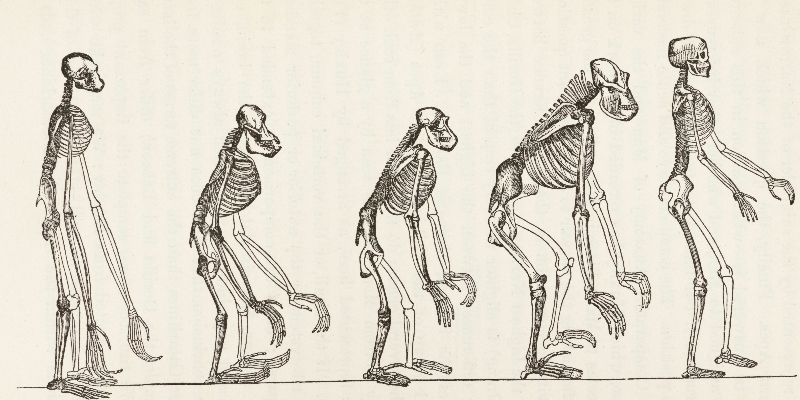The coronavirus pandemic is dramatically disrupting not only our daily lives but society itself. This show features conversations with some of the world’s leading thinkers and writers about the deeper economic, political, and technological consequences of the pandemic. It’s our new daily podcast trying to make longterm sense out of the chaos of today’s global crisis.
On today’s episode, Andrew talks with Kermit Pattison, author of Fossil Men, about answering the ultimate question: Where did we humans come from?
From the episode:
Andrew Keen: Kermit, you spent some time in Africa; you were there twice. You try to represent Ethiopian science and the Ethiopian people in this, but of course, it is a Western endeavor. But the book ends on a high note in the sense that the Ethiopians themselves are developing not their own science, but their own scientists. Tell me a little bit about your experience in Ethiopia and the history of Ethiopian scientists. Perhaps the next Tim White will be Ethiopian.
Kermit Pattison: This is kind of a parallel story through the book. The backbone of the book, if you will, is the story of the search and discovery and interpretation of this skeleton, Ardi, the fossil woman, if you will. But there are a couple of parallel stories, and one of those is the the ascendance of Ethiopian scientists. This was an important development because human origins is a story set in Africa but for a long, long time, the storytellers, the anthropologists, the archeologists, were white Westerners—Europeans, Americans. And at the time my book begins, there had been this sort of gathering resentment on the part of the Ethiopians that they had been excluded from this science.
Andrew Keen: Understandably so, right?
Kermit Pattison: Yeah. Yeah. And so, the resentment on the part of Ethiopians was, these foreigners come in, they find all our fossils, archeological relics, and in some cases are exporting them out of the country or not training local people; they’re just using local people for labor.
Andrew Keen: It’s sort of another chapter in the Elgin Marbles saga, right?
Kermit Pattison: Yeah. And so, long story short, the Ethiopians felt like the Westerners were treating them like an export economy. What happened was basically the Ethiopians—even as the country was wracked by revolution and civil war and then going through a lot of political turmoil in the early parts of this story—the antiquities people there were making clear a couple expectations of the foreign scientist. One is they wanted them to train Ethiopians to be participants in the science at a PhD level.
And then too, they wanted the foreign scientists to invest in Ethiopian museum facilities. That would be like storage space for all these artifacts that are being found, these fossils and stone tools and also lab space. And both those things happen. Actually, one of the central characters in this book is a partner of Tim White. He is Ethiopian. His name is Berhane Asfaw, and he is arguably the father of paleoanthropology in Ethiopia. Now, over time, because of the efforts of these people and a few other people, Ethiopia developed a small cadre of indigenous scientists in geology, anthropology, and archeology. And now they actually have a decent sized core of Ethiopian-born scientists. Some are in the country; some are here in the US or in Europe.
On my last trip there, I was talking to the guy who was the head of the agency that oversees antiquities in Ethiopia, and he said to me something like this. He said, yeah, when I talk to my colleagues in Kenya or Tanzania or South Africa, they’re all a little envious of Ethiopia because they don’t have in those countries the same numbers of indigenous scientists who are represented. But that’s been a difficult struggle, and believe it or not, it’s actually been controversial within Ethiopia for a whole number of reasons.
________________________
Subscribe now on iTunes, Spotify, Stitcher, or wherever else you find your podcasts!
Kermit Pattison is a journalist whose work has appeared in the New York Times, GQ, Fast Company, and Inc., among many other publications. He spent more a decade doing research for Fossil Men, a large portion of which was spent in the field in Ethiopia with the team that discovered Ardi. This is his first book. He lives in St. Paul, Minnesota.
